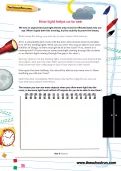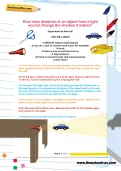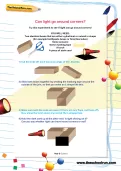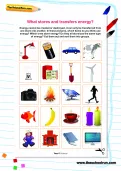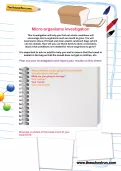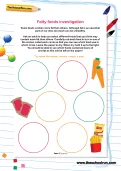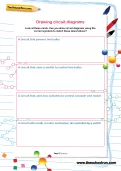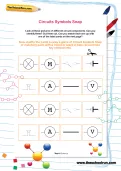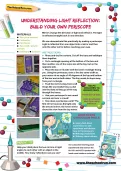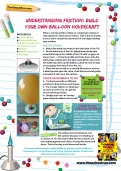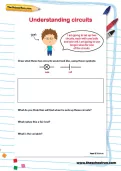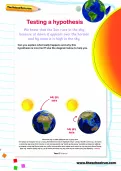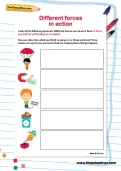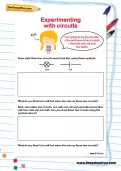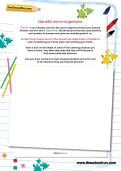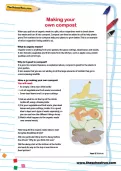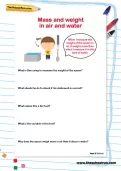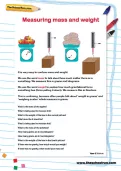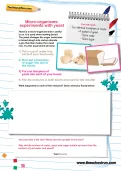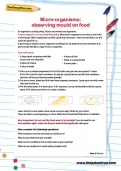Year 6 Physical processes worksheets
How light helps us to see
We see an object because light shines onto it and is reflected back into our eye. When it gets dark this evening, try this activity to prove the theory.
How does distance of an object from a light source change the shadow it makes?
Time for an experiment! Let's find out how the distance of an object from a light source changes the shadow it makes.
What stores and transfers energy?
Energy cannot be created or destroyed, it can only be transferred from one store into another. In these pictures, which items do you think use energy? Which ones store energy? Do they all store/use the same type of energy? Cut them out and sort them into groups.
Micro-organisms investigation
This investigation will help you find out which conditions will encourage micro-organisms such as mould to grow.
Fatty foods investigation
Ask an adult to help you select different foods that you think may contain more fat than others. Carefully rub each food in turn in one of the circles. Label each circle so that you can see which food was in which circle. Leave the paper to dry. When dry hold it up to the light. You should be able to see which foods contained more oil and fat as this will be left on the paper!
Drawing circuit diagrams
Look at these cards. Can you draw circuit diagrams using the correct symbols to match these descriptions?
Circuits Symbols Snap
Look at these pictures of different circuit components. Can you identify them? Cut them out. Can you match each one up with one of the label cards on the next page? Now shuffle the cards to play a game of Circuit Symbols Snap or matching pairs with a friend or adult to help revise these key components.
Understanding light reflection: Build your own periscope
Mirrors change the direction of light and reflect it. We can demonstrate this practically by making a periscope. Light is reflected from one object into a mirror and then onto the other mirror before reaching your eyes. Collect your materials and find out for yourself!
Understanding friction: Build your own balloon hovercraft
When a moving surface slides on a stationary surface it rubs against it, which slows it down. This is due to friction, a force which resists the movement of one object sliding past another. Understand more about friction with a fantastic practical project: make your own balloon hovercraft!
Understanding circuits
A worksheet to help test children's knowledge of circuits. It also asks questions about fair testing and variables.
Testing a hypothesis
A worksheet giving a hypothesis about the movements of the Sun and Earth. Children need to think about whether it is right or wrong and explain their reasoning.
Different forces in action
This worksheet has pictures to prompt children into thinking about the different forces that are at work in everyday life. It also gives another sheet with explanations of the different forces.
Experimenting with circuits
This worksheet asks children to think about what difference extra bulbs or cells make to a circuit.
Harmful micro-organisms
This download prompts your child to think about the harmful micro-organisms that are killed by cleaning products.
Making your own compost
This download explains the process of micro-organisms being useful in helping organic matter to decay. It then gives instructions on how to make your own compost.
Mass and weight in air and water
Children are asked to think about the difference between the weight of a spoon in water and the weight of a spoon in air.
Measuring mass and weight
This worksheet asks questions to help prompt your child to distinguish between mass and weight. There are also some questions on equipment and units used to measure the mass and weight of objects.
Micro-organisms: experiments with yeast
This activity gives a clear insight into the effect of mixing sugar with yeast in order to produce a gas.
Micro-organisms: observing mould on food
A simple activity your child can carry out at home in order for them to see micro-organisms in the form of mould developing on different food types.
